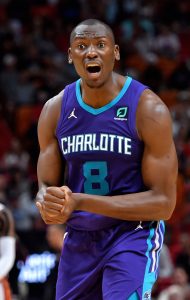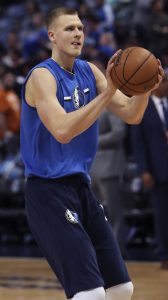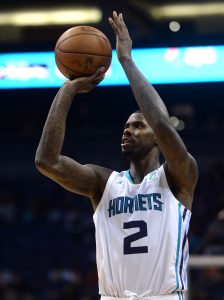During each NBA league year, teams face limits on the amount of cash they can send out and receive in trades. Once they reach those limits, they’re no longer permitted to include cash in a deal until the following league year.
For the 2018/19 NBA season, the limit is $5,243,000. The limits on sending and receiving cash are separate and aren’t dependent on one another, so if a team has sent out $5,243,000 in trades and also received $5,243,000 in separate deals, they don’t have a clean slate — they’ve reached both limits for the season.
Thanks to reporting by cap experts like Bobby Marks, Eric Pincus, and Albert Nahmad, we’ve been able to keep tabs on the cash sent and received in trades by teams during the 2018/19 NBA league year, so we have a pretty clear idea of each club’s flexibility heading into the draft.
Being able to send or receive cash on draft day is particularly useful, since it can provide a simple means of acquiring – or moving – a second-round pick. A year ago, five of the trades agreed upon in June that featured 2018 draft picks included cash.
Of course, three of those five trades weren’t actually completed until July, which highlights a simple way to work around these restrictions. A team that can’t send or receive cash at this year’s draft could still technically agree to a deal involving cash, then officially finalize it sometime after July 1, when the cash limits reset for the 2019/20 league year.
Still, the 2018/19 restrictions are worth noting, since in some cases a player’s changing cap figure or contract status can make it impossible to wait until July to make a trade official.
With that in mind, here are some of the limitations facing teams until July 1:
Ineligible to receive cash:
- Charlotte Hornets
- Chicago Bulls
- Toronto Raptors
The Hornets reached their limit less than a week until the 2018/19 league year, having received $5MM from the Nets in their Dwight Howard trade and $243K from the Thunder in a deal involving Hamidou Diallo.
As for the Bulls, they reached their yearly limit in three separate transactions, acquiring approximately $2.63MM in a pair of swaps with the Rockets involving Michael Carter-Williams and Carmelo Anthony. Chicago then received another $2.61MM from the Thunder in a Timothe Luwawu-Cabarrot salary dump.
Based on the reported figures for the Raptors ($5MM from the Spurs in the Kawhi Leonard blockbuster, plus $110K apiece from the Sixers and Nets in deadline deals), they could technically acquire another $23K. However, $110K is the minimum amount of cash a team can include in a trade this season, so Toronto can’t actually acquire any more.
Outside of these three teams, every NBA club is eligible to acquire at least $2MM before July. The Magic ($2,226,778), Sixers ($2,743,000), Mavericks ($3,148,049), and Hawks ($3,187,090) are most limited.
Ineligible to send cash:
- None
No NBA teams have reached their limits for sending out cash this season, though some are close.
The Nets ($243,000) and Spurs ($243,000) can barely trade any cash after sending out $5MM in deals last July. The Thunder ($411,294) and Rockets ($565,513) are also nearly tapped out, having made a handful of moves aimed at reducing – or in Houston’s case, eliminating – their luxury tax bills.
The Wizards ($2,365,456), Grizzlies ($2,660,069), and Celtics ($2,737,090) are also somewhat limited in their ability to trade cash, but no other teams have less than $3MM available.

 With that in mind, let’s check in on how this year’s RFAs-to-be will be impacted by the starter criteria. Listed below are the former top-14 picks on track for restricted free agency who have not met the starter criteria. These players will be eligible for qualifying offers worth $4,485,665.
With that in mind, let’s check in on how this year’s RFAs-to-be will be impacted by the starter criteria. Listed below are the former top-14 picks on track for restricted free agency who have not met the starter criteria. These players will be eligible for qualifying offers worth $4,485,665.